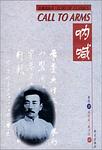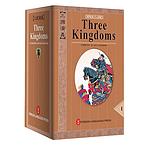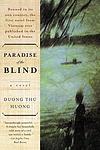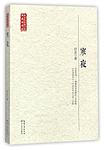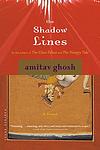The Greatest Asian "Historical fiction" Books of All Time
Click to learn how this list is calculated.
Genres
Historical fiction is a genre of literature that combines fictional stories with real historical events, settings, and characters. These books often take place in a specific time period and are based on research and factual information, but also include imaginative elements to create a compelling narrative. Historical fiction allows readers to experience the past in a unique and engaging way, while also providing insight into the social, cultural, and political issues of the time.
Date Range
Reading Statistics
Click the button below to see how many of these books you've read!
Download
If you're interested in downloading this list as a CSV file for use in a spreadsheet application, you can easily do so by clicking the button below. Please note that to ensure a manageable file size and faster download, the CSV will include details for only the first 500 books.
Download-
1. Midnight's Children by Salman Rushdie
The novel tells the story of Saleem Sinai, who was born at the exact moment when India gained its independence. As a result, he shares a mystical connection with other children born at the same time, all of whom possess unique, magical abilities. As Saleem grows up, his life mirrors the political and cultural changes happening in his country, from the partition of India and Pakistan, to the Bangladesh War of Independence. The story is a blend of historical fiction and magical realism, exploring themes of identity, fate, and the power of storytelling.
-
2. A Suitable Boy by Vikram Seth
Set in 1950s India, this epic novel follows the story of four families over a period of 18 months, focusing primarily on the young woman Lata and her mother's quest to find her a suitable husband. The narrative explores the political, social, and personal upheavals in a newly independent India, struggling with its own identity amidst the backdrop of a society grappling with religious tensions, land reforms, and the shaping of a modern democratic state. Lata's journey is an exploration of love, ambition, and the weight of familial duty.
-
3. A Fine Balance by Rohinton Mistry
"A Fine Balance" is a poignant narrative set in India during the 1970s, a time of political turmoil and upheaval. The plot revolves around four diverse characters - a widow, a young student, and two tailors - who are brought together by fate. Through their interconnected lives, the book explores themes of caste, poverty, political corruption, and the human spirit's resilience. It offers a profound exploration of the delicate balance that sustains life amidst adversity.
-
4. Call to Arms by Xun Lu
"Call to Arms" is a collection of short stories that vividly capture the impact of the socio-political upheaval during the early 20th century in China. The narratives delve into the lives of ordinary people, predominantly the peasantry and the lower classes, who are often caught in the throes of societal change and struggle for survival. Through a blend of realism and symbolism, the stories explore themes of tradition versus modernity, the human condition, and the quest for justice, reflecting the author's critical engagement with the national and cultural issues of his time.
-
5. The Temple of the Golden Pavilion by Yukio Mishima
This novel follows the life of a young man named Mizoguchi, who becomes an acolyte at a famous Zen temple in Kyoto. Mizoguchi is afflicted with a stutter and a severe inferiority complex, which leads him to develop a destructive obsession with the temple's beauty. As he struggles with his personal demons, his fixation escalates into a desire to destroy the temple. The book is a profound exploration of beauty, obsession, and the destructive nature of ideals.
-
6. Nectar in a Sieve by Kamala Markandaya
"Nectar in a Sieve" is a tale of an Indian peasant woman named Rukmani who endures the hardships of rural poverty, natural disasters, and personal tragedy, while trying to raise her children and maintain her marriage. The book explores themes of love, hope, and the strength of the human spirit against the backdrop of a rapidly changing India. Despite the constant struggles, Rukmani never loses her faith and hope, symbolizing the resilience and strength of ordinary people in the face of adversity.
-
7. The Sea of Fertility by Yukio Mishima
"The Sea of Fertility" is a four-part epic that follows the life of Shigekuni Honda, a man who believes in reincarnation. The series spans several decades, beginning in the early 20th century and ending in the 1970s, and explores Japanese history, culture, and spirituality. As Honda encounters individuals he believes to be the reincarnations of his childhood friend, he grapples with questions of identity, mortality, and the nature of the soul.
-
8. Home and the World by Rabindranath Tagore
This novel is a political and philosophical exploration set in early 20th century India during the country's struggle for independence. It revolves around three main characters: a nobleman, his wife, and his friend, a fervent nationalist. The story unfolds as the wife, initially confined to the inner quarters of their home, begins to question her societal boundaries and the idea of nationalism after meeting her husband's friend. The narrative delves into the complexities of love, freedom, and the concept of home and world, set against the backdrop of the Swadeshi movement, a part of the Indian independence movement against British rule.
-
9. Romance of the Three Kingdoms by Guanzhong Luo
"Romance of the Three Kingdoms" is a historical novel set in the turbulent years towards the end of the Han dynasty and the Three Kingdoms period in Chinese history, starting in 169 AD and ending with the reunification of the land in 280. The story, part historical, part legend, and part mythical, romanticizes and dramatizes the lives of feudal lords and their retainers, who tried to replace the dwindling Han dynasty or restore it. The novel deals with the plots, personal and military battles, intrigues, and struggles of these states to achieve dominance for almost 100 years.
-
10. Heat and Dust by Ruth Prawer Jhabvala
"Heat and Dust" is a novel set in two different time periods in India, exploring themes of colonialism, gender roles, and cultural clash. The story alternates between the 1920s, following the scandalous life of Olivia, an English colonial wife who falls in love with an Indian prince, and the 1970s, where her step-granddaughter journeys to India to uncover the truth about Olivia's life and her own identity. The narrative exposes the complexities of love, culture, and identity in the context of British colonial rule and post-colonial India.
-
11. Untouchable by Mulk Raj Anand
"Untouchable" is a novel that explores a day in the life of a young Indian man, Bakha, who belongs to the lowest caste, the Untouchables. The narrative follows Bakha's experiences of extreme discrimination and humiliation as he performs his job as a latrine cleaner. Despite the harsh realities of his life, Bakha dreams of a better future and is fascinated by the modern world and British rule. The novel provides a poignant critique of the caste system and the social inequalities in India.
-
12. The Water Margin: Outlaws of the Marsh by Shi Naian
"The Water Margin: Outlaws of the Marsh" is a classic Chinese novel set during the Song dynasty, revolving around 108 outlaws who gather at Mount Liang to form a sizable army. The narrative explores themes of rebellion, loyalty, and justice, as these bandits challenge the corrupt and oppressive government. Despite their status as outlaws, they follow a strict code of honor and righteousness, often assisting the poor and the weak. The book is a blend of history, folklore, and mythology, offering a vivid portrayal of the political and social dynamics of the era.
-
13. The Makioka Sisters by Junichiro Tanizaki
"The Makioka Sisters" is a novel set in pre-World War II Japan, following the lives of four sisters from a once-wealthy Osaka family. The story focuses on their struggles to maintain their traditional lifestyle and status in a rapidly changing society. The two elder sisters are concerned with finding a suitable husband for the third sister, while the youngest sister, more modern and independent, resists the constraints of her family's expectations. The book provides a detailed and nuanced exploration of the clash between tradition and modernity in Japanese society.
-
14. Rickshaw Boy by Lao She
"Rickshaw Boy" is a novel about a young man living in Beijing in the 1920s who struggles to escape poverty and achieve personal independence. Despite his hard work and determination, he is continuously set back by societal and personal misfortunes, including failed business ventures, a disastrous marriage, and the loss of his rickshaw. The book serves as a critique of traditional Chinese society, illustrating the harsh realities of life for the working class during this time period.
-
15. Paradise of the Blind by Dương Thu Hương
"Paradise of the Blind" is a poignant tale of a young Vietnamese woman's journey through life amidst the socio-political upheavals of her country. The narrative follows her struggle to reconcile her familial duties with her own personal aspirations, as she navigates through the complexities of her relationships with her mother and aunt. The book provides a critical examination of the Communist regime in Vietnam, its impact on the traditional Vietnamese family structure, and the cultural and societal changes it brought about.
-
16. The Twilight Years by Sawako Ariyoshi
"The Twilight Years" is a poignant story revolving around the life of a middle-aged woman who is burdened with the responsibility of taking care of her ageing and ailing father-in-law while trying to balance her work and personal life. The novel explores the themes of old age, family responsibilities, societal expectations, and the struggles of women in a patriarchal society. It offers a critical examination of the social, cultural, and personal issues related to aging and care-giving in post-war Japan.
-
17. Ice-Candy-Man by Bapsi Sidhwa
Set during the tumultuous time of the partition of India in 1947, "Ice-Candy-Man" tells the story of a young girl named Lenny who is growing up in Lahore. Through her innocent perspective, the book explores the religious and political tensions of the time, focusing on the impact of these events on the lives of ordinary people, particularly women. The narrative also explores the dynamics of power and manipulation through the character of Ice-Candy-Man, a charming street vendor who becomes a ruthless mob leader.
-
18. The Sorrow Of War by Bao Ninh
The book is a poignant tale about a North Vietnamese soldier, Kien, and his experiences during and after the Vietnam War. It's a graphic and emotional exploration of the traumas of war, the loss of innocence, and the struggle to make sense of life post-conflict. The narrative is non-linear, shifting between his horrific war experiences, his post-war life in Hanoi, and his attempt to come to terms with his past. The novel also highlights the broader societal impact of the war, particularly on the Vietnamese people.
-
19. The River Sutra by Gita Mehta
"The River Sutra" by Gita Mehta is a captivating novel that explores the intertwining lives of various characters along the sacred river Narmada in India. Through vivid storytelling and rich descriptions, the book delves into themes of spirituality, love, and the search for meaning in life. As the characters embark on journeys of self-discovery, the river serves as a powerful metaphor for the flow of life and the interconnectedness of all beings. With its lyrical prose and thought-provoking narrative, "The River Sutra" offers a profound exploration of the human experience and the timeless wisdom of ancient traditions.
-
20. The Great Indian Novel by Shashi Tharoor
This book is a satirical take on Indian politics and history, cleverly intertwined with characters and events from the epic Mahabharata. The narrative presents a parallel between the two, with the characters in the novel mirroring significant figures from India's political scene during the Independence and post-Independence era. The book is a humorous yet thought-provoking critique of Indian society and politics, offering a unique blend of myth, history, and satire.
-
21. Balzac and the Little Chinese Seamstress by Dai Sijie
This novel tells the story of two teenage boys sent to a remote mountain village for re-education during China's Cultural Revolution. There, they meet a local tailor's daughter, who becomes their friend and the object of their shared affection. The boys discover a hidden suitcase filled with forbidden Western classics in Chinese translation, and their lives are forever changed. The books not only awaken their passion for literature, but also allow them to educate the Seamstress, ultimately leading to a heartbreaking love triangle and a tale of personal freedom against the odds.
-
22. Black Rain by Masuji Ibuse
The novel is a poignant and detailed account of the aftermath of the atomic bombing of Hiroshima, as experienced by a Japanese family. Through the diary entries of a survivor and the narrative of the days that follow, the book explores the devastating impact of the bomb on the city's inhabitants, their struggle with radiation sickness, and the societal stigma they face. It delves into the physical and psychological trauma inflicted by the event, painting a somber picture of the human cost of war and the long-lasting effects of nuclear weapons on both individuals and communities.
-
23. Retreat Without Song by Shahan Shahnour
"Retreat Without Song" is a poignant narrative of the Armenian diaspora, focusing on the life of an immigrant living in Paris during the early 20th century. The protagonist grapples with feelings of alienation, despair, and disillusionment as he navigates his new life in a foreign land while dealing with the haunting memories of his homeland and the Armenian genocide. The novel explores themes of identity, exile, and the psychological impact of displacement, providing a deep insight into the human condition and the struggle for survival.
-
24. Cold Nights by Ba Jin
"Cold Nights" is a poignant love story set in the backdrop of China's turbulent political climate during the 1940s. The narrative follows the protagonist, Wan Da, as he navigates through the hardships of life, love, illness, and death. As his wife, Zhenzhen, falls ill with tuberculosis, Wan Da's struggle to secure medical help for her amidst the chaos of war paints a vivid picture of human endurance and the power of love. The book also explores themes of existentialism and the human condition, offering a profound look at life's hardships and the strength of the human spirit.
-
25. The Shadow Lines by Amitav Ghosh
"The Shadow Lines" is a novel that explores themes of memory, family, and national identity through the eyes of a young boy and his experiences growing up in Calcutta, India. The narrative is framed by two major historical events: the 1964 Dhaka Riots and the 1942 World War II. The protagonist's relationships with his family and his personal experiences are juxtaposed with these events, highlighting the complexities of identity, memory, and the lasting impacts of historical events on individual lives. The novel also delves into the arbitrary nature of national borders and the shadow lines they draw between people and their histories.
Reading Statistics
Click the button below to see how many of these books you've read!
Download
If you're interested in downloading this list as a CSV file for use in a spreadsheet application, you can easily do so by clicking the button below. Please note that to ensure a manageable file size and faster download, the CSV will include details for only the first 500 books.
Download


